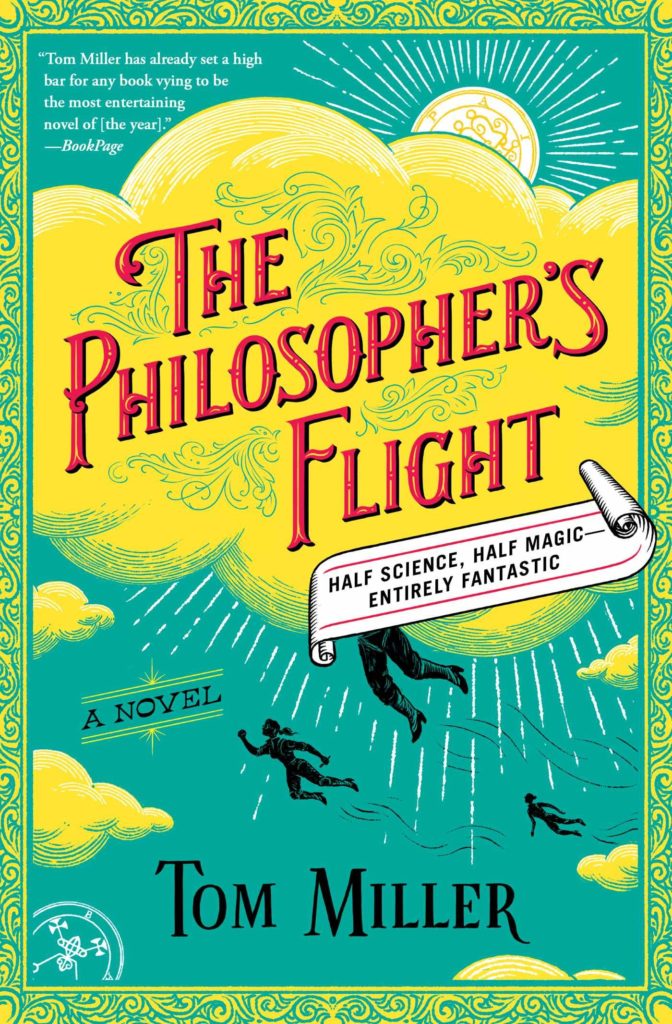This book starts off with an incredibly interesting premise: An alternate history where what we would call magic — hovering in mid-air, teleporting, and instantly “freezing” injured people — is possible through a science called Empirical Philosophy, which involves using various chemical powders to draw symbols (“sigils”) to effect specific changes. Set just after the turn of the 20th century, in the midst of the first World War, we get fascinating glimpses into how this new science helped turned the tide of the Civil War and reshaped America as we know it.
Of course Empirical Philosophy is not equally available to or welcomed by everyone. The most powerful philosophers are always women, which puts men at a disadvantage, and in fact men are openly discriminated against. There’s a growing movement to limit what, when, how, and by whom Empirical Philosophy can be practiced. And a smaller but very vocal group of militants called Trenchers will stop at nothing to silence prominent philosophers.
The story begins with a teenager, Robert Weekes, who helps his overworked mother in her role as County Philosopher somewhere in Montana. His dream is to one day serve on the U.S. Sigilry Corps’ Rescue & Evacuation squad — something no man has ever done. Despite not having the natural abilities of a woman, Robert proves his worth on a rescue mission to a homestead that has been attacked by trenchers. And while most women laugh him off, he finds a few key allies that want to help him achieve his dream.
And this, for me, is where the story starts to go haywire.
Despite the compelling backdrop of simmering violence in the open country of Montana, where generational animosities are primed to explode, Robert chooses to attend Hogwarts Radcliffe Academy in Boston to study sigilry as one of only three male students in the all-girls college. Despite some open rebellion against his presence, Robert makes a handful of good friends at Radcliffe, including Gloxinia “Jake” Jacobi, a rich, beautiful, and well-connected classmate; Unger, Robert’s “squib” roommate who, despite a thorough understanding of the mechanism of sigilry cannot get one to work; and Danielle “Dar” Hardin, a fiery war hero returned to Radcliffe to finish her studies.
While Jake and Unger are described as two life-long friends that Robert makes on his first day in Boston, they are largely absent from the middle part of the book. A glaring error, I think, since those characters represent polar opposites in the world of Radcliffe, and their relationships with Robert, especially where they overlapped, could have been fascinating.
Instead, we get a large part of the book where Robert’s relationship with a new girlfriend overwhelms everything else. As much as that may happen in real life, it doesn’t make for very interesting reading. And that, for me, was the fatal flaw of this book.
The Philosopher’s Flight was a pretty brisk read, but ultimately disappointing. I may continue the series at some point in the future when I have forgotten the details and only remember the really interesting premise.
